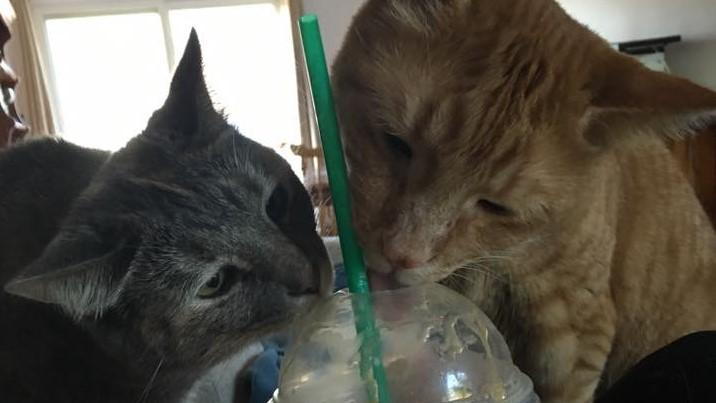Ewww! Hairballs!

- posted: Jun. 13, 2020
Ewww! Hairballs!
If you own a cat, chances are very high that you’ve seen a hairball first hand. That hacking gagging sound followed by those cigar-shaped wads of hair and mucus on your beige carpet are gross to say the least. But, why do cats get hairballs and how can you prevent them?
Cats are expert groomers and their rough, barbed tongues make the perfect tool for removing loose hair as they lick their coats. In most cases, ingested hair passes through the intestinal tract and is eliminated as poop. But sometimes a large wad of hair forms in the stomach irritating the lining and making the cat vomit the hair instead. The elongated shape comes from the hair being forced up the food tube or esophagus.
Long-haired cats may have a higher incidence of hairballs and they may also be expelled more frequently during warmer weather due to increased shedding. Hairballs do not generally cause serious health issues for cats, and a cat may vomit a hairball every 1-2 weeks. But, occasionally, cats can develop an intestinal blockage from large amounts of hair which can be serious and may require surgery.
If you cat is vomiting hairballs more than one to two times a week, she is retching or gagging and not bringing up a hairball or is not eating well, lethargic or constipated, have her checked by your vet. It may be something other than hairballs causing your kitty to feel sick.
So, how can we prevent cats from getting these yucky globs of hair? Keeping your cat brushed to remove loose hair, especially if he has a long coat can help reduce the amount of hair swallowed during grooming. Shaving long-haired cats to keep their coats short may also reduce hairballs. Using a hairball control diet may also help decrease the number of hairballs. These diets have increased fiber to help move hair through the digestive system. Finally, hairball remedy treats or gels act as a mild laxative or lubricant and can help hair slide through the intestines.
Hairballs are a nuisance but rarely cause serious issues for cats. Remember, keep your cat’s coat brushed or clipped short to remove loose hair and consider a hairball control diet or hairball remedy gel or treat to keep hairballs at bay. Seek veterinary help for your cat if he or she is vomiting hairballs frequently, is gagging, coughing or retching without bringing up any hair or seems lethargic or stops eating as kitty may have something else making him or her sick. Keep those kitties hairball-free!
This blog brought to you by the Patton Veterinary Hospital serving Red Lion, York and the surrounding communities.
Location
Patton Veterinary Hospital
425 E Broadway
Red Lion, PA 17356
